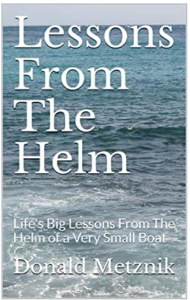
We are drawn to what delights our eyes and for this reason it is prudent to understand how something so natural and simple as an admiring glance may lead to disaster.
We have no control over what our eyes are drawn to. These are instinctive reactions embedded in our DNA and go as far back as our reptilian ancestors. On the flip side of instinct, we have a mind that can process what our eyes are drawn to and make conscious decisions about how to respond. In between, we have the ability to willfully acquire knowledge and skills that blend instinct with reason for the purpose of making better decisions.
Consider Adam and Eve (Genesis 3:6);
“When the woman saw that the fruit of the tree was good for food and pleasing to the eye, and also desirable for gaining wisdom, she took some and ate it. She also gave some to her husband, who was with her, and he ate it.”
Eve’s eyes were instinctively drawn to the fruit of the tree. No harm there but she had already been commanded by God not to eat it and warned of the consequence of doing so. Nor did God say that the fruit would make her wise. The serpent, however, manipulated Eve’s reasoning by declaring—falsely—that the fruit would make her wise and, additionally, would make her like God. So, not only were Eve’s eyes drawn physically to the fruit, but mentally to what pleasure or benefit the fruit could produce.
What is happening here?
Eve heard God but listened to the serpent. She heard God but believed the serpent. Why?
It is not for us to know why, but we can learn an important lesson. What delights the eye (and by extension draws us to all sorts of pleasures) is neither good nor bad; it is how we respond that results in good or bad. Is there a test we could easily apply to guide us to good vs. bad, right vs. wrong? There is.
The test is simple: are we drawn to Christ or away from Him? Will our actions shine light upon His glory or condemnation upon ourselves? Do we obey or disobey? And when the temptation seems overwhelming, do we surrender to the delight or to our God?
We can make tragic decisions without some form of spiritual filtering. Consider Herod who surrendered to the pleasure of his eyes resulting in the beheading of John the Baptist (Matthew 14).
What filters are we given to temper what delights the eye with what delights our Lord? Here are two:
The psalmist gives us great insight:
“Take delight in the Lord, and he will give you the desires of your heart.”
Psalm 37:4
And the author of wisdom literature gives us great understanding:
“Seek his will in all you do, and he will show you which path to take.”
Proverbs 3:6


